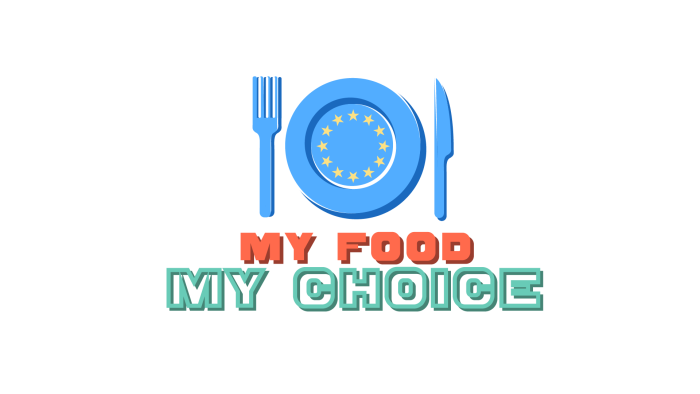Did you know that...
the foods you consume are not subject to the same health, environmental, or animal welfare requirements depending on whether they are produced in the European territory or imported?
The divergences in production methods used in the livestock sector or in terms of pesticides, for example, create distortions of competition that penalize European farmers and undermine the integrity of EU environmental obligations. They are sometimes even used as a pretext to weaken European health and environmental standards.
In the run-up to the European elections in 2024, a citizens' group launched a campaign to call on European decision-makers to ban the arrival, on our plates, of imported foods treated with antibiotics and banned pesticides, or derived from agricultural practices prohibited in Europe. The adoption of mirror measures must become a working axis of the future European Commission's program and a political priority for European legislators. Pending the implementation of these mirror measures, no free trade agreement without a mirror clause should be ratified.
The proliferation of free trade agreements and the increase in agricultural product flows make agriculture more intensive in countries exporting to the EU. Mirror measures would help counter this phenomenon by aligning standards between third countries and the EU. Mirror measures should allow sustainable products to be exported to the EU, especially for sectors originating from Southern peasant organizations and for fair products that are not produced in the EU (coffee, tea, chocolate). This reflection should also allow for a review of the EU's export policy, particularly for certain products prohibited for use in the EU or for products of lesser quality.
In practice, this involves conditioning access to the EU market on compliance with certain essential European standards in terms of sustainability, environment, health, or animal welfare, among others.
This is a condition for the success of the ambitious environmental objectives outlined in the Green Deal.
Our videos
Spread the Word About Our Campaign!
Take action
How?
- By sharing the campaign videos on your networks: You too can become an actor in this citizen mobilization!
- And by directly challenging the EU leaders by tagging them in your posts, along with the following message:
"Stop importing food treated with substances or derived from agricultural practices banned in 🇪🇺! Support #mirror measures to protect our health, the planet, and our farmers."
They are in a position to move the issue forward :
Who are we?

Marine Colli
mother of two children, is a consultant who advises several organizations on agricultural, environmental, and international trade policy issues aimed at protecting sustainable agricultural and food systems. She has been advocating for several years against free trade agreements that facilitate the arrival, on the European market, of foods that do not comply with the environmental and health production standards imposed on French and European farmers.

Mathilde Dupré
mother of two children, is an economist and head of a think tank specializing in ecological and social transition issues, the Veblen Institute. From tax evasion to respecting human rights and the environment in global value chains, to trade agreements, her activities aim to establish more regulation in international trade.

Thomas Uthayakumar
trained agronomist and specialist in sustainability issues in food systems, has worked on agricultural foresight, combating imported deforestation, and the economic and social performance of agroecology. His various experiences have led him to interact with research, teaching, international institutions, and NGOs. After six years at WWF, he recently joined the Foundation pour la Nature et l’Homme to lead Programs and Advocacy. Beyond agricultural topics, he also covers issues of sustainable mobility and biodiversity preservation.

Tiphaine Piriou
established her gastronomy and public relations consulting agency in 2018, after 15 years dedicated to promoting French agricultural products for export, during which she collaborated with several top chefs in 27 different countries. She now pursues her new professional life in line with her commitment to promoting French culinary culture and gastronomy.

Pierre-Yves Rommelaere
works as a cook in social catering, at the canteen. Committed and militant for years, he advocates that another canteen is possible and that cooks have an important role to play in the necessary transition in collective catering. He believes that the canteen can support agriculture and is convinced that it will be a lever for the establishment of diversified, local, and peasant agriculture. Through meetings and exchanges, Pierre-Yves has become an expert in this field. In his canteen, he is happy to set an example of catering that he hopes will be exemplary.

Emilie Jeannin
a breeder and activist entrepreneur for happy cows and farmers. After conceiving and implementing France's first mobile slaughterhouse, she dedicates herself to the financial support of projects with impact.

Baptiste Buczinski
father of two children, lives in rural Brittany. This agro-economist closely monitors all trade agreements and their effects on agriculture and the environment. He has participated in several impact studies on the issue. He is committed to this citizen campaign notably because of the numerous observed distortions of competition still not addressed in the agreements.

Nicolas Sabatier
a multi-entrepreneur committed to ecological and social transition issues, is particularly interested in questions related to human interactions within organizations.
Who are we?

Marine Colli
mother of two children, is a consultant who advises several organizations on agricultural, environmental, and international trade policy issues aimed at protecting sustainable agricultural and food systems. She has been advocating for several years against free trade agreements that facilitate the arrival, on the European market, of foods that do not comply with the environmental and health production standards imposed on French and European farmers.

Mathilde Dupré
mother of two children, is an economist and head of a think tank specializing in ecological and social transition issues, the Veblen Institute. From tax evasion to respecting human rights and the environment in global value chains, to trade agreements, her activities aim to establish more regulation in international trade.

Thomas Uthayakumar
trained agronomist and specialist in sustainability issues in food systems, has worked on agricultural foresight, combating imported deforestation, and the economic and social performance of agroecology. His various experiences have led him to interact with research, teaching, international institutions, and NGOs. After six years at WWF, he recently joined the Foundation pour la Nature et l’Homme to lead Programs and Advocacy. Beyond agricultural topics, he also covers issues of sustainable mobility and biodiversity preservation.

Tiphaine Piriou
established her gastronomy and public relations consulting agency in 2018, after 15 years dedicated to promoting French agricultural products for export, during which she collaborated with several top chefs in 27 different countries. She now pursues her new professional life in line with her commitment to promoting French culinary culture and gastronomy.

Pierre-Yves Rommelaere
works as a cook in social catering, at the canteen. Committed and militant for years, he advocates that another canteen is possible and that cooks have an important role to play in the necessary transition in collective catering. He believes that the canteen can support agriculture and is convinced that it will be a lever for the establishment of diversified, local, and peasant agriculture. Through meetings and exchanges, Pierre-Yves has become an expert in this field. In his canteen, he is happy to set an example of catering that he hopes will be exemplary.

Emilie Jeannin
a breeder and activist entrepreneur for happy cows and farmers. After conceiving and implementing France's first mobile slaughterhouse, she dedicates herself to the financial support of projects with impact.

Baptiste Buczinski
father of two children, lives in rural Brittany. This agro-economist closely monitors all trade agreements and their effects on agriculture and the environment. He has participated in several impact studies on the issue. He is committed to this citizen campaign notably because of the numerous observed distortions of competition still not addressed in the agreements.

Nicolas Sabatier
a multi-entrepreneur committed to ecological and social transition issues, is particularly interested in questions related to human interactions within organizations.

Tugdual Le Lay
Former Secretary-General of the European Confederation of Small Cities, he is a lecturer at SciencesPo Paris and INSEAC on the challenges of citizen engagement in Europe and the evaluation of European public policies. Co-founder of an ICE for the defense of Uberized workers in Europe, he launched the Rural Initiative in 2023, for Europe to affirm a political project for more public services in proximity, in rural areas.










